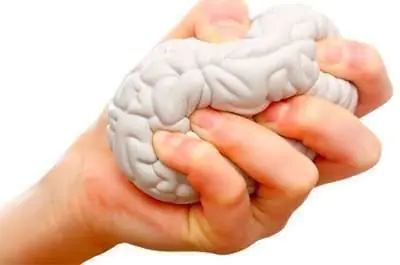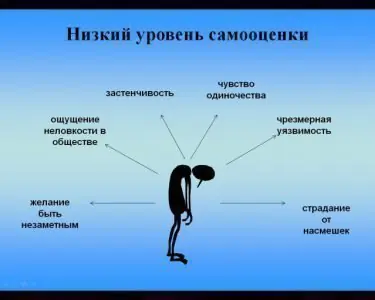Nowadays, the concept of stress and the impact stress has on the body are relevant and are being actively studied by specialists. The main reason for this is the transition of stress to the category of ordinary phenomena. A person of any age, gender and social level can be a victim of the harmful effects of stressful situations. Through this reaction, the body tries to protect itself from an atypical situation that forces it to make difficult decisions and leave its comfort zone.

The effect of stress on the body's condition
Causes
Stressful situations can arise due to the influence of any factor. However, scientists usually divide possible causes of development into two main categories - external and internal.
If we try to consider the reasons why stressful situations arise, we can highlight the following factors:
- Too high professional load.
- Not having a good intimate or personal life.
- Facing misunderstanding from family and friends.
- Urgent need for finance.
- Having a pessimistic mood.
- Low self-esteem.
- A situation in which the demands on both oneself and the environment are too high.
- The state of internal struggle of the individual.

Low self-esteem is one of the causes of stress
However, you should not think that such conditions can be caused exclusively by situations with a negative attitude. According to experts, the effect of stress on the body can also be observed in the case of an excess of positive emotions. This can happen when you move up the career ladder quite quickly or after the couple gets married.
As soon as it is possible to establish which events provoked stress, the cause must be eliminated as soon as possible. You should not be afraid of changing your life and reduce negative influences to a minimum.
Formation of a specific reaction
During life, any living creature tries to adapt as best as possible to the environment and circumstances. However, back in 1936, scientists proved that the ability to adapt does not work under stress. The reason for this was the changes in hormonal levels that occur during strong emotional changes.
Based on the data obtained during the research, three stages of stress are distinguished, namely:
- Anxiety. This stage is considered to be a kind of preparation, during which the hormone is released.
- Resistance stage. During this stage, the body resists the disease, and the person himself becomes more irritable and aggressive.
- Exhaustion. The struggle squeezed all the juice out of a person and depleted all the energy resources of the body. It is during this stage that the serious consequences of stress begin.

During the exhaustion stage, the impact of stress on a person manifests itself through psychosomatic disorders. And also during this stage, the development of deep depression or even death occurs.
Stress and physical health
Many people, thinking about the impact of stress on the body, first of all project the consequences of this unfavorable state exclusively on the physical level. And this is not at all surprising, because thoughts are thoughts; they can still be justified. But when the body starts to hurt, there is no time for jokes and excuses.
The consequences of stress can be disappointing not only when a person’s physical health is already weakened. Against the background of such conditions, many negative changes and processes occur in the body of a previously healthy person.

Stress affects your appearance
Today, the following main manifestations of the influence exerted by a strong emotional change on physical health are distinguished:
- A person experiences pain in the head area that does not have a characteristic localization.
- A person exposed to this situation suffers from insomnia and chronic lack of sleep.
- Functional abnormalities in the functioning of the cardiovascular system.
- The effect of stress on human performance can also hardly be called positive. When under stress, a person suffers from increased levels of fatigue, impaired concentration and decreased performance.
- Stress is a common cause of bloating and gas. In the same way, due to tense situations, more serious problems in the functioning of the gastrointestinal tract can develop.
- If a person has cancer problems, then their exacerbation is observed.
- The negative impact of stress causes a decrease in the body's defenses, which increases the risk of the appearance and development of viral diseases.
- Functioning of neuroendocrine regulation.
- Stress is also dangerous for the body because it can lead to the development of metabolic diseases (diabetes mellitus, osteoporosis and others).
- The negative impact of stressful situations can also be expressed through degeneration of brain tissue or muscle rigidity. In some cases, the development of atony is observed.
- Stress as a reaction of the human body to negative emotions can also cause alcohol or even drug addiction.
To sum it up briefly, there is only one conclusion - human health can suffer greatly from the influence of severe or prolonged stress. And this, in turn, suggests that when faced with the problem of a stressful state, it is necessary to solve it without delay.
Impact on mental state
Since school, each of us knows that the psyche is an integral part of health. Therefore, a stressful situation, when it occurs, has a direct impact on a person’s mental balance. And in order to correctly understand whether you are susceptible to harmful influences, you need to clearly know how exactly stress affects the psyche.
To date, experts have identified the following mental consequences of stress:
- The development of depression, neuroses and other disorders that are mental in nature.
- People lose interest in life and lack desires.
- The sleep and wakefulness patterns are disrupted.
- The person has emotional instability.
- The appearance of an internal feeling of anxiety that is very persistent.
This is exactly how hormonal disruption, provoked by exposure to stressful situations, affects a person and his mental balance.
Imbalance leads to various disorders, resulting in inappropriate behavior and feelings of apathy.
Manifestations in terms of work
Stress affects the body not only through diseases of various organs and systems and the inability to think correctly. Agree, the monotony of work, constant emotional upheavals and a state of tension sooner or later leads to the fact that a person cannot work productively.
Stress and its impact on a person professionally manifests itself as follows:
- A person regularly makes mistakes when performing his actions.
- The desire to sleep increases.
- There is no or very little appetite.
- Noises in the head or even migraines appear.
- There is pain in the eyes.
- Thoughts become soaring, it is very difficult for a person to concentrate on what needs to be done.
- It becomes increasingly difficult to continue working.

Head noise and migraines appear
As can be seen from this list, the impact of stress on human behavior and activity is far from the most positive. And given the fact that fatigue accumulates, if you do nothing, then, in the end, you can completely lose your ability to work. It is for this reason that it is recommended to return to normal before stress and its effect on the human body leads to catastrophic consequences.
Positive effects of stress
It may be hard to believe, but experts have found that in some situations stress has a positive effect. However, this only occurs when the stressor was short-lived.
To date, the following manifestations of the positive impact of stressful situations have been identified:
- Impact on the nervous system. In such situations, nerve cells are activated, which is why the brain begins to work with maximum productivity. There is also an improvement in working memory.
- The level of the hormone responsible for tenderness and trust increases in the body.
- In a state of short-term stress, the body activates spare energy reserves. Thanks to this, motivation and strength are found to further solve the problem that caused the change in emotions.
- When experiencing stress, the human body increases its endurance.
- The body's defenses are increased by activating the immune system.
- Analytical abilities are sharpened, which helps to make the right decision.
To summarize, we can safely say that not all stress is uniquely negative. There are cases when the body's functioning improves rather than worsens when a stressful situation occurs. But this does not mean at all that you need to constantly subject yourself to short-term shocks, because the more stressful situations a person experiences, the more the positive effect changes to negative.
Restore the body after a stressful situation
Morally strong people differ from others in that they have a high level of resistance to negative situations occurring in their lives. The ability to fully control your behavior undoubtedly allows you to protect yourself from the attacks of stress. You can hide from situations that cause unpleasant sensations.
However, in order to feel and act normally, it is important to learn how to deal with any problem.
The following stress prevention methods will help restore your body and strengthen it:
Release of emotions
While in privacy, take a deep breath and shout as loud as your vocal cords will allow. It is ideal to do this activity in nature. Experts say that the most effective is to shout the same word three times.
Breathing exercises
Sometimes proper breathing is a lifeline in cases where you need to get rid of unusual feelings and emotions. To calm down, it is often enough to take deep breaths through your nose for a minute and then exhale through your mouth.

Breathing exercises promote mental harmony
Scientists have proven in the course of their research that bringing the breathing rhythm back to normal helps to establish mental harmony.
Physical exercise
You can neutralize the effect of stress on human health through moderate stress on the body. And in this case, we are talking not only about sports, but also about any everyday concerns that require the use of physical strength. Cooking, cleaning or doing laundry - all this can help a person normalize his mental state.
Support from loved ones
The opportunity to open your soul, speak out and receive support in return always helps to cope with negativity and overcome an unpleasant situation.
Russian bath
Visiting a bathhouse not only reduces the impact of stress on a person’s health to a minimum, but also helps to cope with many diseases, the progress of which has nothing to do with hormonal levels and emotional upheavals.
Conclusion
Stressful situations have little positive effect, but can greatly spoil the general condition. Changes in emotions and its consequences affect the thyroid gland, brain, and internal organs. To protect yourself from all possible troubles, you should learn not to take minor situations to heart and show worthy resistance to the more serious negativity that is increasingly nearby.
In society, any nervous disorder is considered to be stress, and its extreme manifestations are considered hysteria. From a medical point of view, hysteria and neurasthenia are mental disorders and are subject to correction by psychiatrists. However, the impact of stress on humans is not limited to neurological disorders.
The term “stress” appeared in medicine from physics, where it refers to the tension of a system due to a force applied from the outside.
The human body as a single system is daily under pressure from external factors. Stressors can be environmental reasons:
- Air pollution,
- Atmospheric pressure surges;
- Magnetic storms;
- Sudden changes in air temperature.
Medical stressors are any diseases (from traumatic injuries to infectious ones), social stressors are conflict situations in a team or society. The impact of stress on a person is great - it negatively affects physical and psychological health.
Medical aspects of stress
In 1926, the founder of the doctrine of stress, Hans Selye, published his observations of patients suffering from various diseases. The results were amazing: regardless of the disease, everyone experienced loss of appetite, muscle weakness, high blood pressure, loss of aspirations and desires.
Hans Selye called stress the same reaction of the body to any external influence.
The most powerful stressor, according to Hans Selye, is the lack of purpose. Also, in a state of physiological immobility, the human body is more susceptible to the development of diseases: stomach ulcers, heart attack, hypertension.
The influence of stress on a person changes living conditions. For example, with strong positive emotions, the vitality of the body increases sharply, this is ensured by increased blood pressure. A person, having realized his dream, feels a loss of appetite and muscle weakness - when exposed to negative emotions, a similar loss of strength is perceived very painfully.
Stress, in fact, is an innate reaction of the body that allows a person to adapt to life in new conditions. Therefore, in medicine it is called adaptation syndrome.
The impact of stress on human health
The development of stress in every person occurs according to a single mechanism. When it comes into contact with a stress factor, the central nervous system sounds an alarm. The body's further reaction is not controlled by the human will, but is carried out by the autonomic, independent nervous system. The mobilization of vital organs and systems that guarantee survival in extreme circumstances begins. Due to the stimulation of the sympathetic nervous system, breathing and heart rate increase, and blood pressure increases. The physiological effect of stress on human health ensures the centralization of blood circulation: lungs-heart-brain. The “flight and fight” hormones are released: adrenaline and norepinephrine. People experience dry mouth and dilated pupils. Muscle tone increases to such an extent that it is often manifested by trembling of the legs or arms, twitching of the eyelids and corners of the mouth.
With the further development of the adaptation syndrome, the influence of stress on human health is expressed in the body’s reaction of adaptation to new living conditions.
The effect of stress on the human body
In the active stage, hormones of the “second line of defense” appear - glucocorticoids. Their action is aimed at emergency survival at the expense of the body’s internal reserves: all liver glucose reserves are used, and their own proteins and fats break down.
If the reaction continues with depletion of vitality, the effect of stress on the person continues. The “alarm” mechanism is turned on again, but there are no internal reserves. This stage of stress is the final one.
During stress, all the body’s forces are directed to the work of the central organs: the heart, lungs and brain, so other vital organs at this time suffer from a lack of oxygen. In such conditions, the following may develop: stomach ulcers, hypertension, bronchial asthma, migraine-like pain, tumors of peripheral organs (cancer).
With a prolonged course, the effect of stress on the human body is manifested not only by the development of diseases, but also by depletion of the nervous system. This condition is medically called neurasthenia. Neurosthenics experience pain in all organs, but most of all, in the head. The person understands that his nervous strength is depleted and considers this condition to be chronic fatigue syndrome. From the point of view of pathological physiology, this is nothing more than a protracted adaptation reaction.
The influence of stress on the human condition
The general tone, that is, the mood of people depends on hormonal levels. Having set a specific goal, a person wakes up feeling full of strength for any achievement. The psychological mood is set by cortisol, the main anti-stress hormone. Its content in the blood in the morning varies greatly depending on the mood for the coming day. Under normal conditions, on the eve of a working day, the level of anti-stress hormone is much higher than on a day off.
When the influence of stress on a person’s condition reaches a critical level, the morning does not bode well for anything pleasant. Therefore, the entire day is considered “ruined.”
A person is deprived of a sense of correct assessment of what is happening. Surrounding events and influences are perceived inappropriately to their strength. Excessive demands on others, for example, on yourself, are often not justified. Often, the influence of stress on a person aggravates the course of chronic diseases. They begin to escalate, as they say, “out of schedule.” Not in autumn and spring, during periods of planned therapeutic measures, but in winter and summer.
The influence of stress on human behavior
In an unstable state, aspirations and goals are chosen by a person, without taking into account his own capabilities. Any desire to achieve something, essentially a negative emotion, becomes positive when the desired result is achieved. If the goal remains unattainable, the emotion becomes a strong stressor.
In extreme conditions, the influence of stress on human behavior is especially noticeable, depending on the initial state of health and temperament, as a character trait. Under the same conditions, people with different attitudes towards the surrounding reality behave completely differently. According to Pavlov’s classification, there are four types of higher nervous activity, weak (melancholic) and three strong, but with some features:
- Unbalanced, reacting to any influence with a violent reaction - choleric;
- Balanced, inert – phlegmatic;
- Agile and balanced - sanguine.
The influence of stress on a person of different types of higher nervous activity is not the same. Strange as it may seem, unbalanced people endure stress most easily. The effect of stress factors on such a person ends with the level of the body’s primary response. Whereas in balanced people, stress goes into the second phase of adaptation, and then leads to exhaustion.
The occurrence of stress and its effect on a person is physiologically caused by changes in hormonal balance. As a result of the body’s reaction, a feeling of anxiety and restlessness first appears, and all forces are mobilized to solve the task. Then comes the phase of adaptation and exhaustion, which is characterized by a deterioration in the emotional state, nervous overstrain and chronic fatigue.
Factors influencing the development of stress
The development of stress is influenced by congenital characteristics and early experiences:
- Genetic risk factors. When conducting psychological studies, it was revealed that people's reactions to certain events depend 30-40% on the genes of their parents and 60-70% on life experience.
- Impact on the embryo. The risk of future stress in a child increases if the mother was in a negative psycho-emotional environment during pregnancy.
- Type of higher nervous activity. Determined at birth. It influences a person's reactions to stimuli. For example, melancholic people experience mental disorders more often than phlegmatic people.
- Childhood experience. Excessive experiences can distort the perception of the world and lead to insufficient resistance to the effects of a stressful situation.
Parental scenarios can provoke the development of stress due to errors in parenting and negative experiences. A person is able to correct this condition with awareness of the problem, sufficient motivation and control of emotions.
A stressful state can arise due to social environmental factors:
- dramatic changes in a person’s position in society;
- increased responsibility;
- the predominance of intellectual activity over physical activity;
- lack of free time and the need to hurry;
- chronic fatigue;
- violation of the daily routine;
- long work shifts;
- lack of creative elements in work;
- the need for a long wait;
- frequent changes of jobs;
- poor sleep;
- unhealthy diet;
- bad habits.
An additional influence is exerted by a person’s social environment. It creates a comfortable or uncomfortable environment. People with close family ties are less susceptible to stress because they feel safe.
When mental stress occurs, cognitive factors are of great importance. A person may feel discomfort due to increased individual sensitivity of receptors and incorrect assessment of the situation.
People with negative personality traits are more susceptible to developing stress. These include a tendency towards aggression, hostility and suspicion, low self-esteem and insufficient motivation.
The effect of stress on the human body
The question of how stress affects health cannot be answered definitively. This condition increases the risk of developing heart disease, worsens psychological mood and can provoke depression. However, stress is a natural defense mechanism that helps quickly mobilize strength to overcome obstacles, so there are also positive consequences.
The effect of stress on immunity
In stressful situations, the immune system works worse. The negative effect is associated with a decrease in the concentration of lymphocytes. This is due to increased synthesis of corticosteroids. If a person tries to get rid of discomfort with alcohol and smoking, the condition worsens.
The influence of stress on human physical health
During stress, increased levels of hormones can increase a person’s stamina and performance, but this effect is short-term. After his disappearance, his health deteriorated sharply. The negative impact of stress on a person’s health is expressed in migraine attacks, muscle pain, concentration problems, digestive disorders, increased fatigue, etc.
Impact of stress on mental health
Fluctuations in hormonal levels have a strong impact on a person’s psychological state. The patient loses the ability to adequately assess what is happening. It is possible that you may have excessive demands on yourself and other people. The person becomes apathetic or aggressive. Patients complain of insomnia and anxiety. The development of neuroses is possible.
The influence of stress on human performance
To answer the question of how stress affects the body of a man or woman, it is necessary to take into account the individual characteristics of the person. In most cases, performance decreases due to chronic fatigue and impaired concentration. Patients often make mistakes. Can't make a plan. Conflicts with colleagues often arise. Patients do not want to work, motivation disappears.
Restoring the body after a stress disorder
Depending on the degree of disturbance, therapeutic measures may vary. Sometimes it is necessary to carry out drug treatment to normalize the psychological state. In other cases, it is recommended to rest so that the body can recover from increased stress and normalize the emotional background.
The following measures may help:
- Emotional release. The method helps to get rid of negativity without entering into conflict with others. The methods may vary. For some people, just shouting in a private place is enough. Anti-stress dolls help you get emotional release.
- Physical exercise. Strong workouts allow you to get rid of excess energy, stabilize your psycho-emotional background and improve your overall tone. However, it is important to avoid overexertion.
- Creation. Allows you to free yourself from negative emotions and relax. You can purchase special coloring books or take up your favorite hobby.
- Communication with animals. Pets help you calm down and relax. Tactile contact allows you to normalize hormonal levels.
- Consultation with a psychologist. A specialist will not only give recommendations for recovery, but also help you believe in yourself and get rid of worries.
- Meditation, breathing exercises, yoga and other relaxing practices. Moderate exercise helps change hormonal levels.
The choice of method depends on individual character traits. The help of others is of great importance during rehabilitation. It is advisable to talk and spend time with family members more often. This will help you get closer and feel a sense of security.



